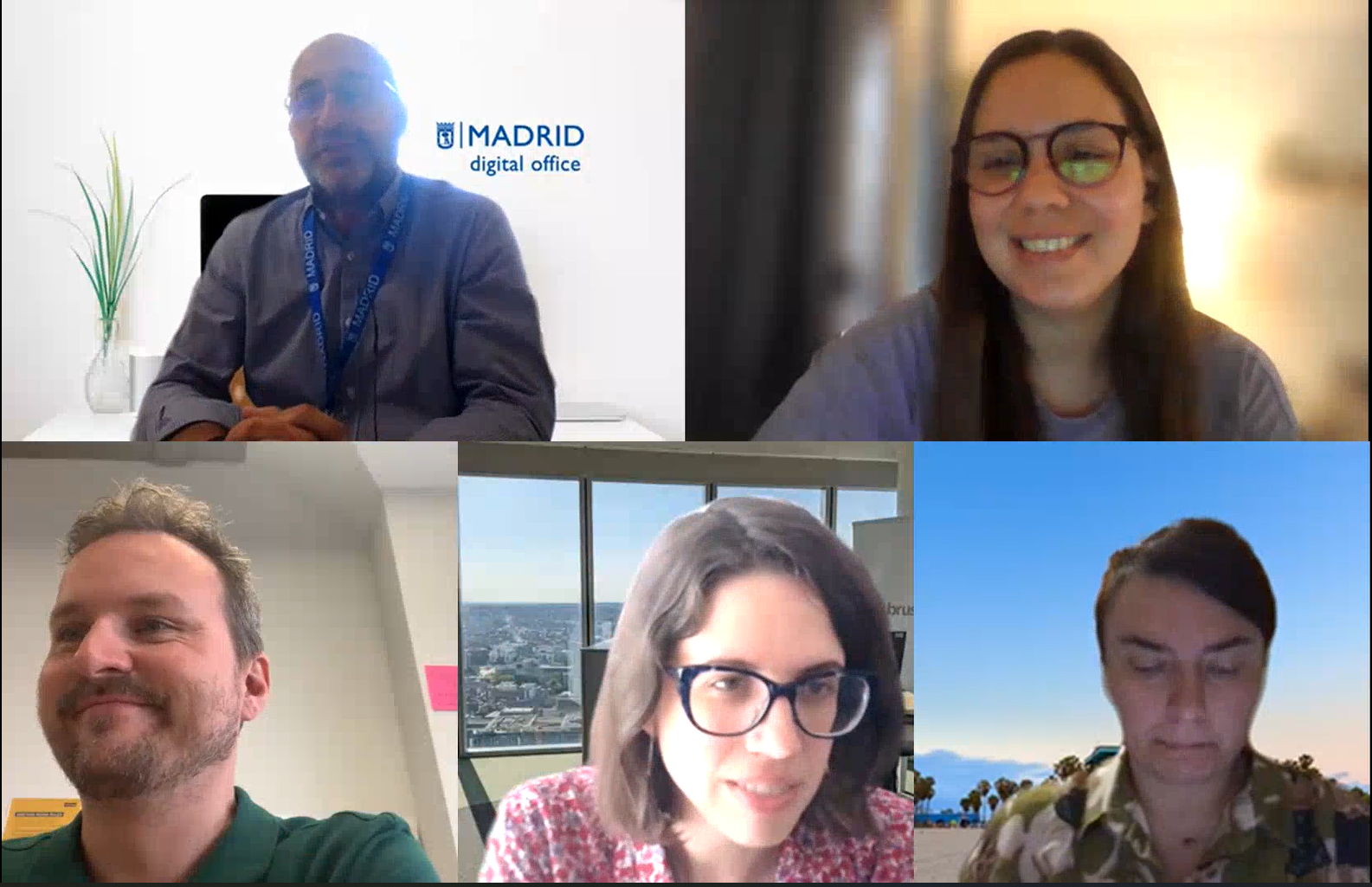
The UserCentriCities community got together for the seventh session of the UserCentriCafé, a monthly informal get-together where cities and regions share and discuss their latest developments around user-centricity.
On this occasion, we were joined by Brussels Capital Region, through their agency responsible for digital transition and administrative simplification, easy.Brussels. Stephanie Dheur, project analyst at easy.Brussels, presented the projects and tools they are working on.
Understood as a way to reduce the administrative burden for users of public services, easy.Brussels applies administrative simplification to save users’ time, reduce travel, and increase transparency, autonomy and efficiency.
As part of the Brussels Regional Public Service Department, the agency oversees building and disseminating the administrative simplification policies within the institutions of the Brussels Capital Region, while giving expert advice to the administration itself on the latest trends in digital transformation, creating awareness and acting as a catalyst by bringing different stakeholders to work together to improve their digital services. Furthermore, they work as a regulatory initiator by developing laws that support the administrative simplification process.
Their Easy Way Plan (vista 2025) aims to offer their citizens, companies and associations a more sustainable, accessible, cheaper and faster administration by improving interaction with users, increasing data exchange and re-use, creating tools, a regulator framework and giving tailored support.
Ms Dheur detailed some of the projects they are currently developing such as Brupost, a management software for outgoing mail from the local administrations and institutions of the region. It aims to remove the obstacles to the digital transition by making it possible for all Brussels institutions to easily send emails to the eBox, a specific mailbox for exchange between administration and citizens and companies. Brupost seeks to change the trend of paper mail by increasing digital communication. The project is led by easy.Brussels and various stakeholders to optimise and centralise paper mail processing.
On the other hand, the Regional Web Strategy, started from the constatation that the Brussels regions have over 200 public websites, with their own look and feel, own management system and different suppliers. Most of the time there is double or outdated content with unclear information for citizens. The objective of the new strategy is to have user-friendly websites for both citizens and administrations, with a single digital gateway and coherent visual identity. The proposal is to have a hybrid strategy (mix-central-decentral), audience-based families (theme sites), for citizens to easily understand where to find the information and the development of a central “digital competence centre” for strategic services management.
Also part of their administrative simplification journey is the Local Registration Authority, a digital key that allows citizens to access public services and processes digitally safely and securely. By June 2021, only one Brussels municipality offered the LRA, a demand that was increasingly growing after the pandemic due to safety concerns. Together with another institution called Brulocalis, the head of the 19 municipalities in Brussels, they developed an assessment to better understand why local administrations were so reluctant to implement LRAs. Lack of information about LRAs, concerns around budget, training times and opening of the offices were the major concerns, which were addressed by communication and awareness campaigns.
By October 2021, 5 municipalities had implemented LRAs with 5,173 digital keys distributed and more than 90,000 keys were also distributed by BOSA (not permanent office). By May 2022, 13 municipalities have implemented the LRA and two more (Forest and Berchem) are also in process of doing so.
Finally, the Single Digital Gateway project offers citizens and businesses one platform that allows accessing information, online procedures, support and problem-solving services from any EU country. Following a very structured timeline, the project aims to have information on the local level available online by December 2022 and the procedures digitalised and available for all Europeans by 2023.
To know more about easy.Brussels and the different projects mentioned above you can visit their official website.
For more information on UserCentriCities and how to join, please contact mayra.garcia-blasquez@eurocities.eu